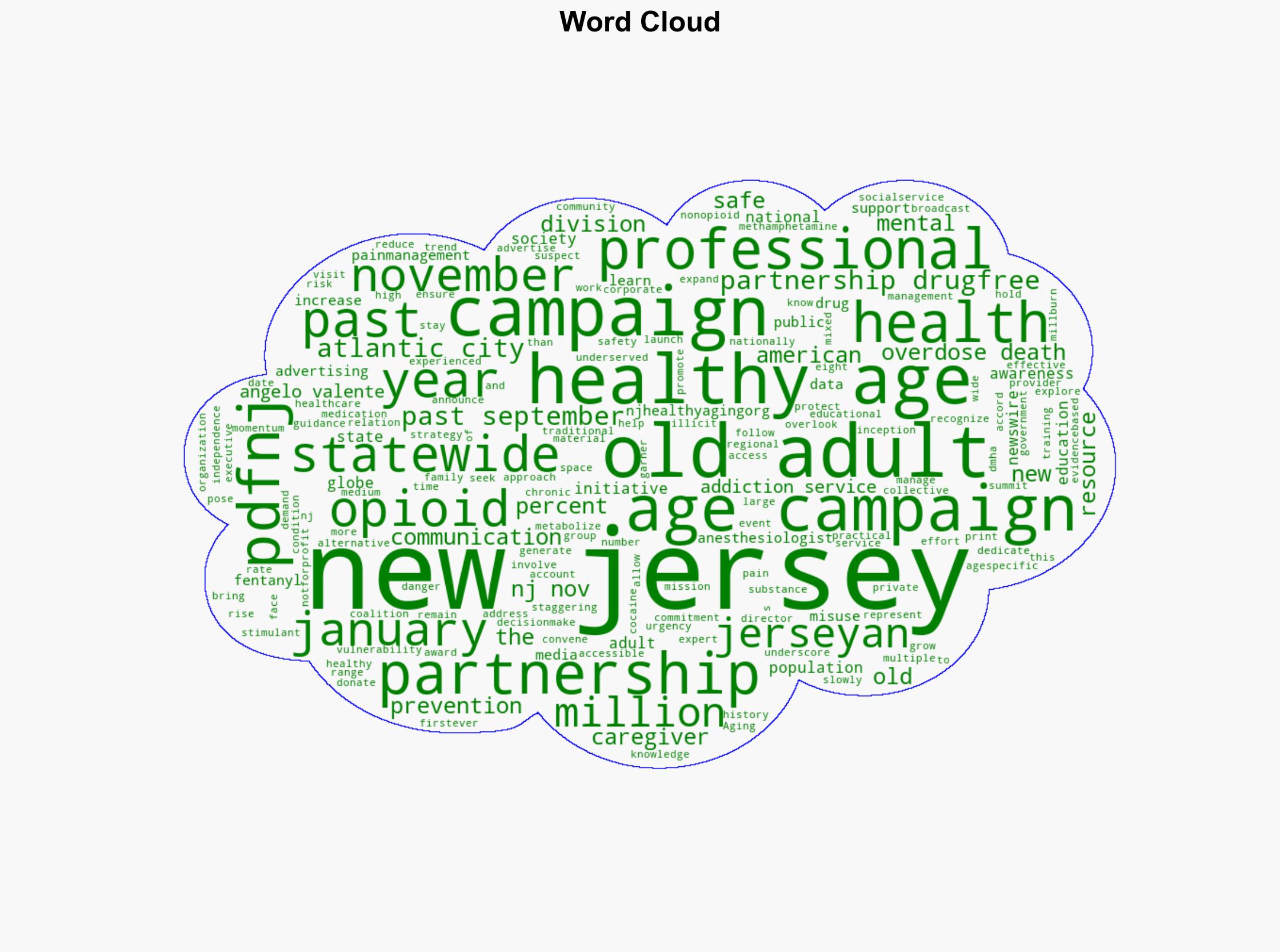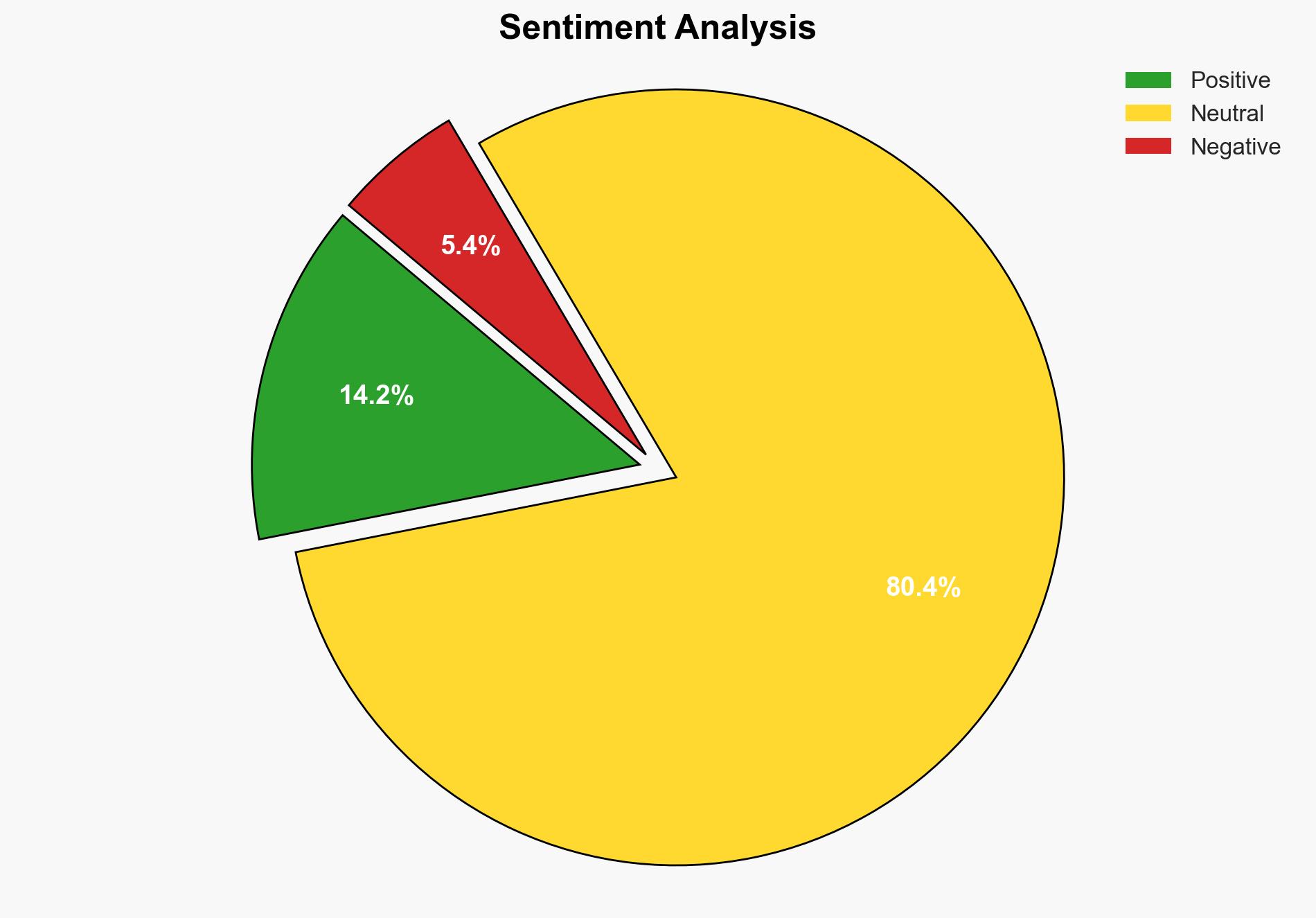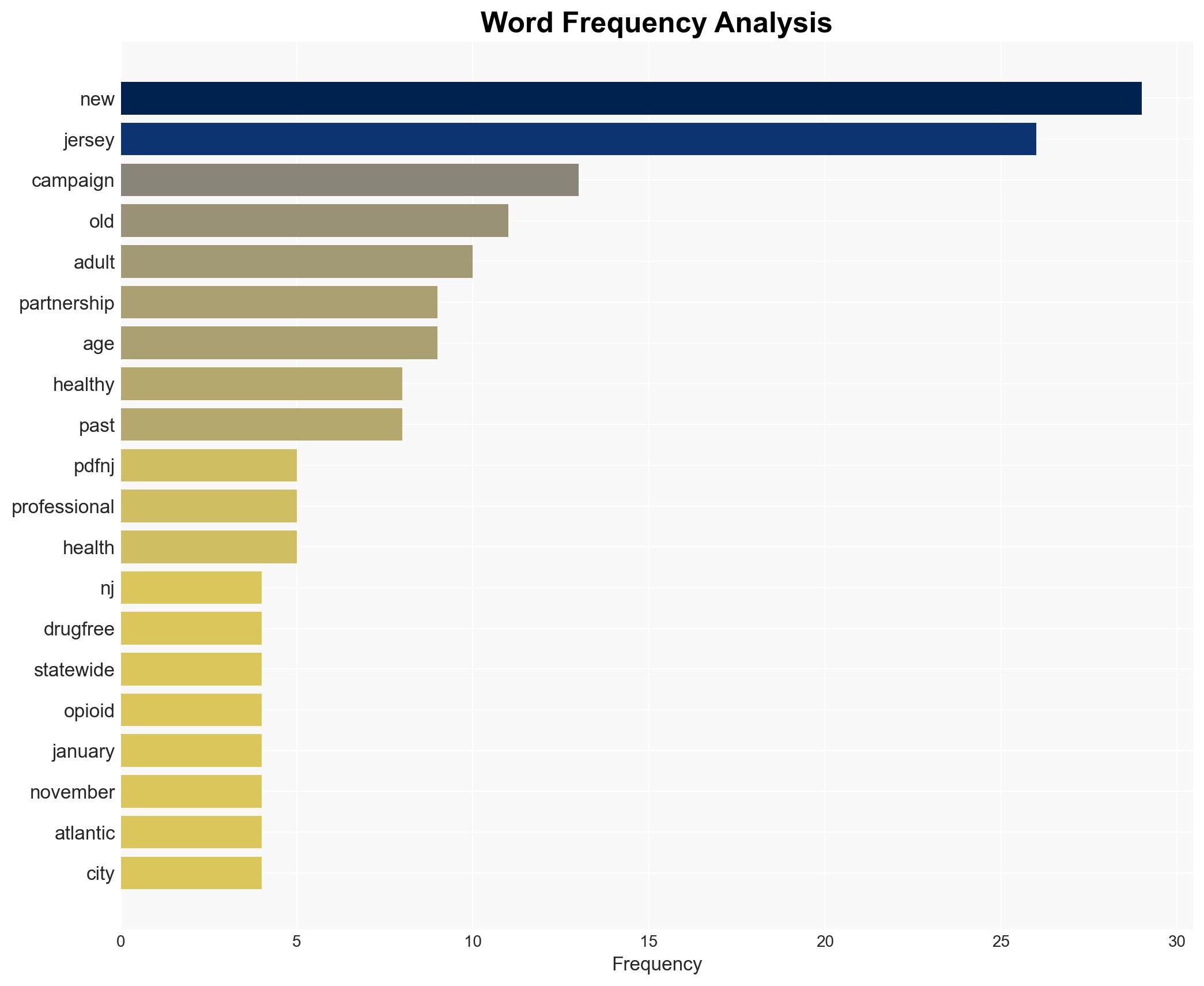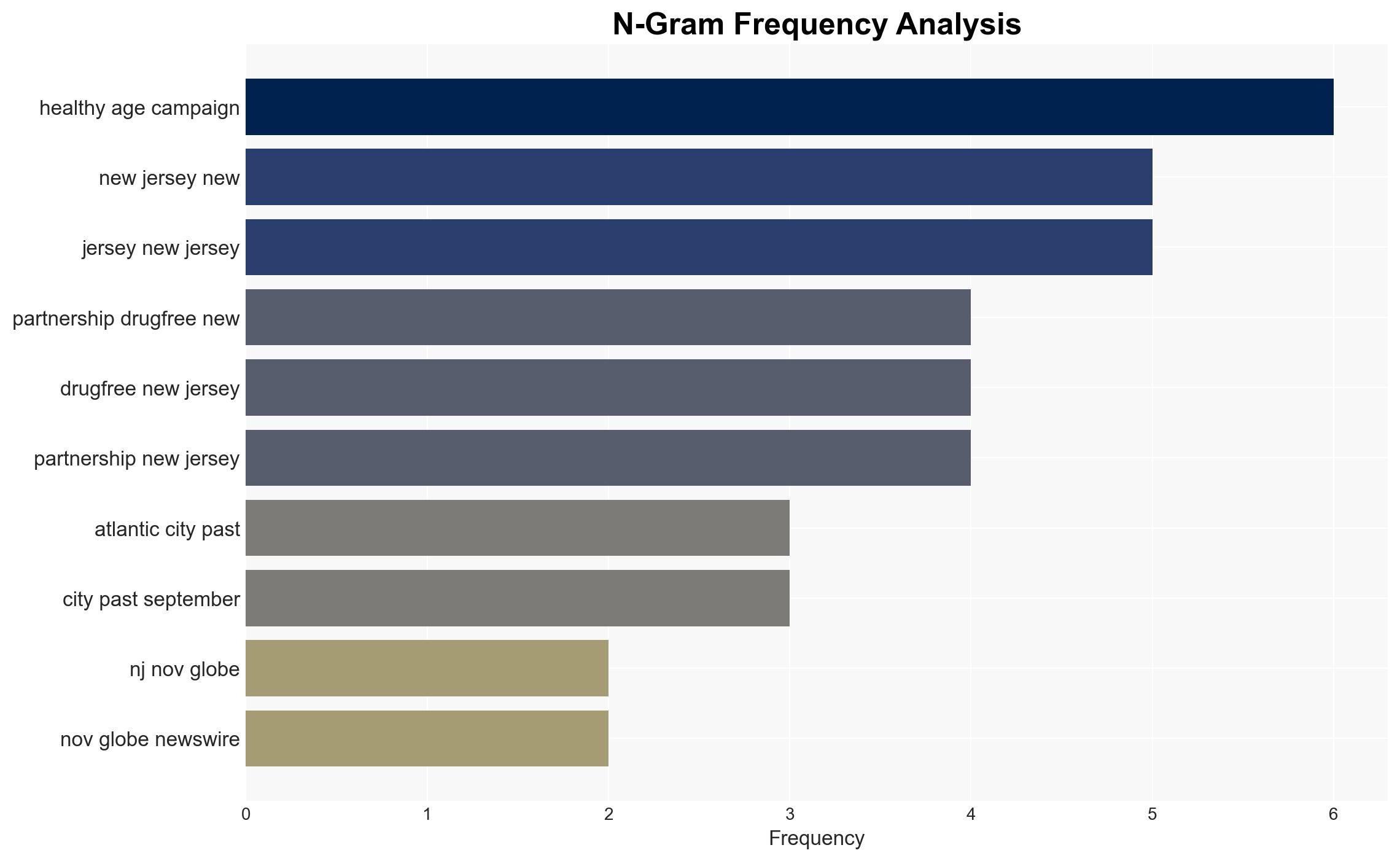Healthy Aging Campaign Targets Opioid Misuse in Older Adults – GlobeNewswire
Published on: 2025-11-20
AI-powered OSINT brief from verified open sources. Automated NLP signal extraction with human verification. See our Methodology and Why WorldWideWatchers.
Intelligence Report: Healthy Aging Campaign Targets Opioid Misuse in Older Adults
1. BLUF (Bottom Line Up Front)
The Healthy Aging Campaign in New Jersey is a strategic initiative aimed at addressing opioid misuse among older adults, a demographic increasingly vulnerable to opioid misuse due to chronic health conditions and slower drug metabolism. The most supported hypothesis is that the campaign will effectively reduce opioid misuse in this demographic through targeted education and resources. Confidence level: Moderate. Recommended action: Enhance collaboration with healthcare providers and expand educational outreach to maximize impact.
2. Competing Hypotheses
Hypothesis 1: The Healthy Aging Campaign will significantly reduce opioid misuse among older adults in New Jersey by providing targeted education and resources.
Hypothesis 2: The campaign will have limited impact due to potential gaps in reaching the most at-risk populations and challenges in changing established behaviors.
Hypothesis 1 is more likely given the comprehensive approach of the campaign, including partnerships with healthcare providers and the use of evidence-based strategies. However, the success depends on the campaign’s ability to effectively reach and engage the target audience.
3. Key Assumptions and Red Flags
Assumptions: The campaign assumes that older adults and their caregivers will actively engage with the provided resources and that healthcare providers will integrate these strategies into their practices.
Red Flags: Potential lack of engagement from older adults due to technological barriers or skepticism towards new interventions. Limited data on the effectiveness of similar campaigns in other regions could indicate overestimation of impact.
4. Implications and Strategic Risks
The campaign’s success could lead to a model for other states, potentially reducing opioid misuse nationwide among older adults. However, failure to achieve desired outcomes could result in wasted resources and continued public health challenges. Economic implications include potential healthcare cost savings if the campaign is successful, but increased costs if opioid misuse continues to rise.
5. Recommendations and Outlook
- Enhance collaboration with local healthcare providers to ensure integration of campaign resources into patient care.
- Expand outreach efforts to include community centers and senior living facilities to increase accessibility.
- Best-case scenario: Significant reduction in opioid misuse among older adults, serving as a model for other states.
- Worst-case scenario: Minimal impact due to engagement challenges, leading to continued opioid misuse and associated health risks.
- Most-likely scenario: Moderate success with room for improvement in outreach and engagement strategies.
6. Key Individuals and Entities
Angelo Valente, Executive Director of the Partnership for a Drug-Free New Jersey.
The New Jersey Division of Mental Health and Addiction Services.
7. Thematic Tags
Cybersecurity, Public Health, Opioid Crisis, Aging Population, Healthcare Education, New Jersey
Structured Analytic Techniques Applied
- Adversarial Threat Simulation: Model and simulate actions of cyber adversaries to anticipate vulnerabilities and improve resilience.
- Indicators Development: Detect and monitor behavioral or technical anomalies across systems for early threat detection.
- Bayesian Scenario Modeling: Quantify uncertainty and predict cyberattack pathways using probabilistic inference.
Explore more:
Cybersecurity Briefs ·
Daily Summary ·
Support us





